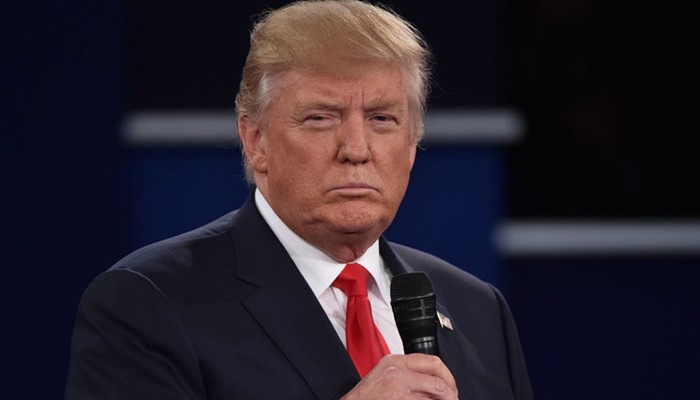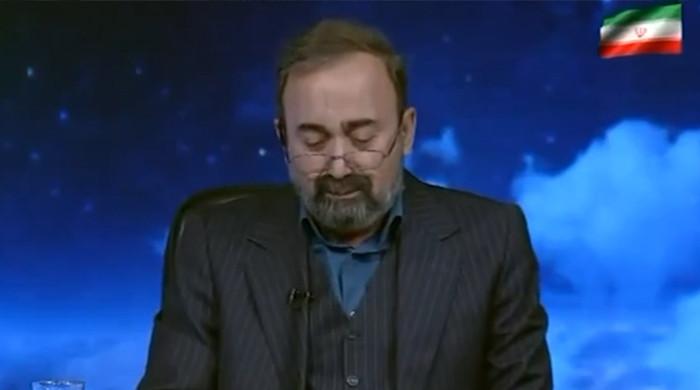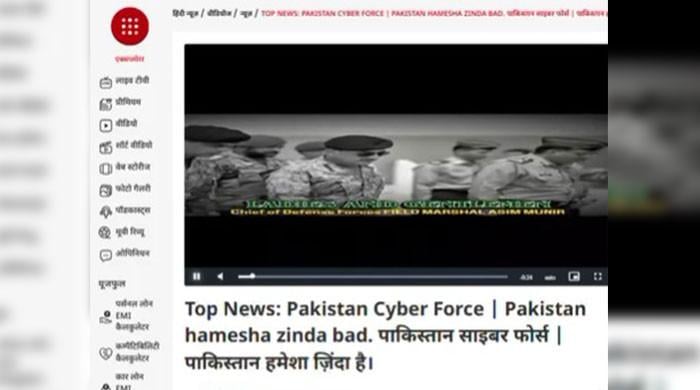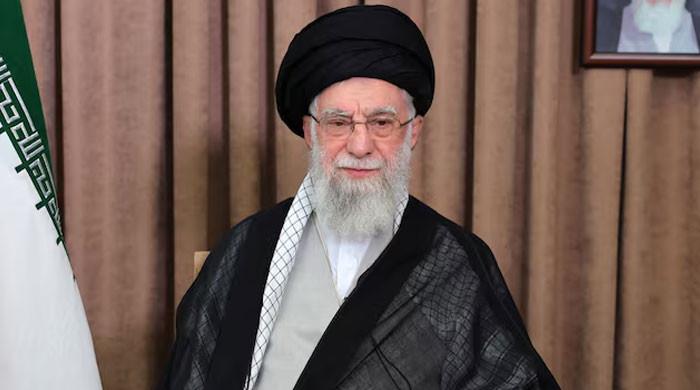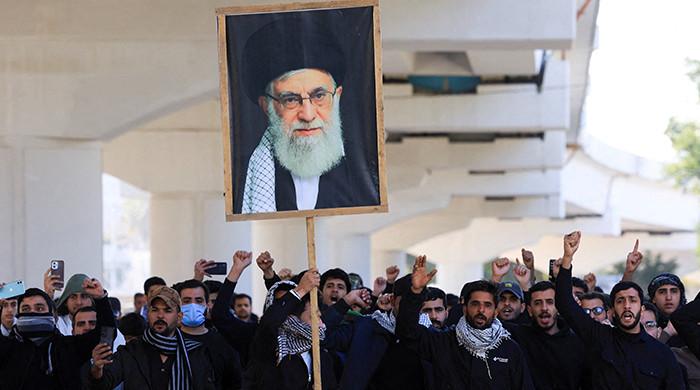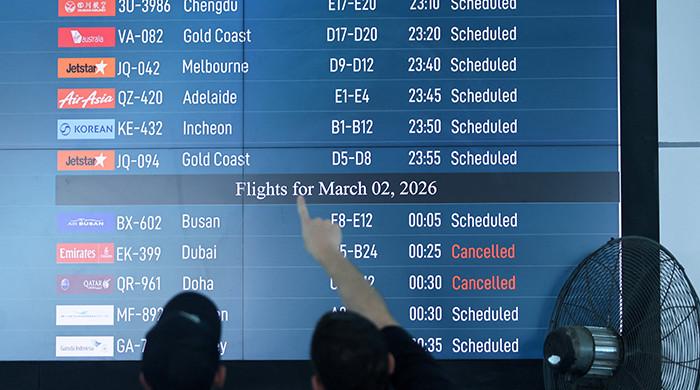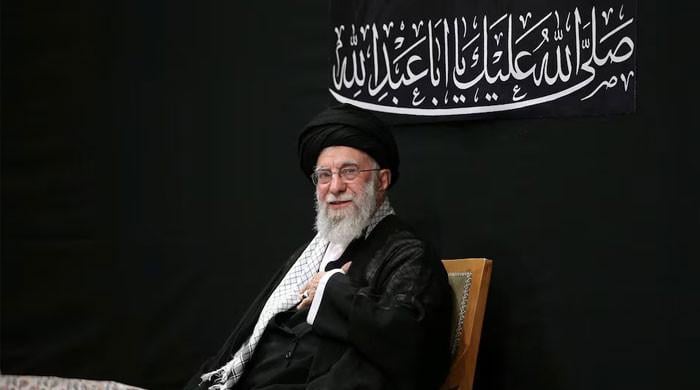Top US senator urges Trump to meet PM Imran
With PM Imran, we have a unique opportunity to change our relationship, says US Senator Lindsey Graham
January 21, 2019
ISLAMABAD: Leading US Senator Lindsey Graham vowed Sunday to urge President Donald Trump to meet Prime Minister Imran Khan and Afghan President Ashraf Ghani to boost Washington's Afghanistan peace efforts.
The Republican — an influential ally of Trump — made the comments in Islamabad after meeting with the Pakistani leader, saying Khan was an "agent of change" and a "new partner" who could potentially help with a peace deal in Afghanistan.
"I'm going to urge him (Trump) to meet with the prime minister as soon as practical," Graham told reporters, saying he believed Khan and Trump would "hit it off" because they have "similar personalities".
"Prime Minister Khan is the agent of change that I've been looking for," he added, lauding the premier's vision for a political resolution of the Afghan issue.
A meeting with Khan, who has declared strong support for a peace agreement in Afghanistan, would leave Trump “far more enthusiastic about the region than he is today”.
'Unique opportunity to change our relationship'
“With Prime Minister Khan, we have a unique opportunity to change our relationship,” he said. A previously transactional relationship, based on rewards for services rendered, should be replaced by “strategic engagement”, including a free trade agreement, he said.
While speaking to media, the Senator also mentioned that Chief of the Army Staff (COAS) General Qamar Javed Bajwa had hosted a dinner in his honour. He said whatever the Pakistan Army has done in the past 18 months has been the US’ wish for 18 years.
Graham, whose comments add to the growing signs of improved relations between Islamabad and Washington, said the US cannot move away from Afghanistan as it has a lot to do here and Pakistan installing border fence is a positive step. Washington, he added, was mistaken to continuously change its policy vis-à-vis Pakistan.
“I’ve seen things change here and all in a positive direction,” Graham, a member of the Senate Armed Services Committee who has generally been a staunch supporter of Trump, told the news conference.
Ties between Washington and Islamabad have soured recently, with US officials repeatedly accusing Pakistan of turning a blind eye to or even collaborating with the Afghan Taliban, which launch attacks in Afghanistan from alleged havens along the border between the two countries.
Trump, Khan, and US security assistance
Trump has repeatedly lashed out at Pakistan's alleged duplicity, saying late last year that Islamabad does not do "a damn thing" for the US.
.
.
Khan has been equally critical of Trump, saying before 2018's election in Pakistan that a potential meeting with the US president would be a "bitter pill" to swallow.
"Trump’s false assertions add insult to the injury Pak has suffered in US WoT in terms of lives lost & destabilised & economic costs. He needs to be informed abt historical facts," he wrote in November last year.
.
.
"Pak has suffered enough fighting US's war. Now we will do what is best for our people & our interests."
Pakistan, on the other hand, had reiterated its woes early last year, stating that the US has overlooked the Pakistan Army's sacrifices — both in terms of personnel and cost — and doesn't credit its effort in pushing back Al Qaeda.
The Pakistani military had brushed off speculation that Trump's new strategy could include taking a stronger line against Islamabad, insisting the country has done all it can to tackle militancy.
.
.
Military spokesperson Major General Asif Ghafoor had said, “We have done enough and we cannot do any more,” indicating that Pakistani forces are already fully engaged in border protection and fighting other extremist groups.
The “suspension of security assistance will not affect Pakistan’s resolve to fight terrorism; however, it, for sure, will have an impact on Pakistan-US security cooperation and efforts towards regional peace,” Maj Gen Ghafoor had commented.
"Let it come. Even if it comes… Pakistan shall do whatever is best in the national interest."
'Need to meet'
The US lawmaker's trip to Pakistan comes as American officials have held several rounds of talks with Taliban representatives.
Graham said a meeting between the two leaders was vital to carve out a potential deal in Afghanistan. "They actually need to meet and come up with [an] agenda that will push a resolution to the war in Afghanistan," the senator added.
Graham — once a potent critic of Trump — has transformed in recent months into an ardent defender and influential ally of the president.
The senator's arrival also overlapped with an ongoing trip by US special envoy Zalmay Khalilzad, who has been shuttling around the region for months to build support for the peace initiative.
Khalilzad was in Kabul last week and then flew to Pakistan where he also met with the prime minister Friday as news reports in Pakistan suggested Islamabad was open to hosting the next round of talks with the insurgents.
Khalilzad's visit and the Taliban
Late Sunday night, the US envoy for Afghan peace efforts termed his discussions with Pakistani top brass as "good meetings".
In a Twitter post, he wrote: "Just completed #Pakistan leg of my current trip in the region to advance the peace process. Good meetings. I appreciate their hospitality & resolve to push for Afghan peace.
.
.
"We’re heading in the right direction with more steps by Pakistan coming that will lead to concrete results," he added.
The Taliban, however, have threatened to suspend the fledgeling peace efforts, accusing Washington of changing the agenda of the talks and "unilaterally" adding new subjects.
Graham's trip also comes after US officials announced in December that Trump intends to withdraw as many as half of the 14,000 US troops deployed in Afghanistan.
Asked whether there had been confusion over the US message, Graham, who has called for a Senate hearing on Trump’s plans to withdraw US troops from Syria and Afghanistan, said “without a doubt” but added that he did not believe Washington would stand by and allow a Taliban victory.
“The world’s not going to let the Taliban take Afghanistan over by force of arms. That would be unconscionable,” he told Reuters. “Any president who let that happen would go down in history very poorly.”
The meetings are the latest in a flurry of diplomatic efforts aimed at bringing the Taliban to the table for negotiations with the Afghan government on ending the conflict which began with the US invasion in 2001.


